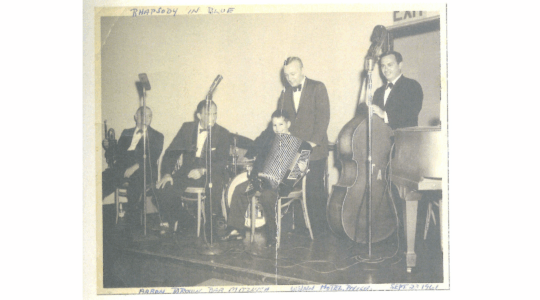NEW YORK, Dec. 11 (JTA) — Leaders of the Presbyterian Church (USA) apparently still have a long way to go before regaining the trust of the Jewish community — and even of some Presbyterians.
In 2004, the Presbyterians’ General Assembly passed a resolution calling on the church to start the process of divesting its $7 billion pension fund from companies that do more than $1 million of business with Israel.
Israel’s occupation of territories the Palestinians claim, the resolution said, “has proven to be at the root of evil acts committed against innocent people on both sides of the conflict.”
The resolution, which also called on Congress to end all military aid to Israel until the occupation ends, passed by a vote of 432-62, with seven abstentions.
Seen as one of the more difficult divestment threats to date, American Jews and many within the Presbyterian Church rallied against it, holding scores of focus groups and conference calls with parties on both sides.
Two years later, meeting in Birmingham, Ala., this June, the General Assembly took a more balanced approach, asking its Mission Responsibility Through Investment group to seek what it called “affirmative investment opportunities” in Israel, Gaza, eastern Jerusalem and the West Bank.
The group targeted five companies for divestment: Motorola, United Technologies, ITT Industries and Caterpillar for working closely with the Israeli military, and Citigroup for handling accounts allegedly used to transfer funds to Palestinian terrorists.
Under the new resolution, even if the word “divestment” will no longer be used, the Presbyterians still could try to pressure companies to cut business ties to Israel’s military.
The resolution passed 483-28, with one abstention. It included an apology to Jews and Presbyterians who were offended by the 2004 resolution, saying, “We are grieved by the pain that this has caused, accept responsibility for the flaws in our process, and ask for mutual understanding and dialogue.”
Even after a recent meeting of Presbyterian and Jewish leaders in Louisville, the reconciliation seems far from complete.
On Nov. 29, the Rev. Clifton Kirkpatrick, clerk of the church’s General Assembly; Rabbi Jerome Epstein, executive director of the United Synagogue of Conservative Judaism; Carl Sheingold, executive vice president of the Jewish Reconstructionist Federation; and Rabbi Eric Yoffie, president of the Union for Reform Judaism, met and drafted a statement that said their communities would continue to consult with each other, support each other and work on social service issues together.
But some of those involved suspect the meeting may have been primarily intended to explain what has happened since the June General Assembly in Birmingham.
Critics say that when the church has communicated the outcome of the Birmingham resolution through its internal newsletter, “Assembly in Brief,” and elsewhere, it describes the resolution as merely a clarification of the 2004 resolution rather than a repudiation.
Immediately after the Birmingham resolution, Ethan Felson, associate executive director of the Jewish Council for Public Affairs, wrote an Op-Ed for JTA saying that the handling of the 2004 conflict should be a model for future anti-divestment fights.
But the Presbyterian leadership’s reluctance to acknowledge a significant change in divestment policy has raised serious questions inside and outside the church, especially among Presbyterians on the Peacekeeping Committee that put together the new resolution and Jewish leaders who engaged the Presbyterians in dialogue after 2004.
“I have seen and experienced great disappointment in what has happened since Birmingham,” Felson told JTA. “The church took extreme pains to say that nothing had changed — and pain is the right word because we felt pain.”
Felson was not invited to the reconciliation meeting in Louisville last month — nor were Orthodox groups — but he was skeptical of it.
“It’s not too late, but the hope for a new beginning in Birmingham has yet to be realized,” Felson said. “What was passed in Birmingham has yet to be evident in deed and not just in word.”
Within the church there appears to be a disconnect between ministers in the pulpit and those in the seminaries and the church’s central offices.
Those on the ground have a more even-handed approach to the Palestinian-Israeli conflict because they need to reflect their congregations. But among the church hierarchy, there is a distinctively pro-Palestinian bent, according to Gary Green, an ordained Presbyterian elder and executive director of End Divestment Now, a Presbyterian group started after the 2004 divestment overture.
After the intifada began in September 2000, a concerted effort was launched to sway the church toward the Palestinian side and delegitimize Israel, Green said. This was evidenced by the election of the Rev. Fahed Abu-Akel, a Palestinian-born minister, as moderator of the 2002 General Assembly.
Many delegates at the 2004 General Assembly were blindsided by the divestment resolution, unaware that it would even be on the docket, Green said. They voted for it based on longstanding church policy not to profit from companies that make money from war.
“It sounded good, and they trusted that people had done their work, but they had the wool pulled over their eyes,” Green said.
However, polls after the 2004 General Assembly showed Presbyterian ministers that those in the pews overwhelmingly did not support the resolution. More than 20 overtures were written and presented at the 2006 General Assembly as alternatives to the 2004 resolution.
“There are a significant number of people in the Presbyterian Church, just like in other places, who have moved from a balanced position,” said the Rev. John Wimberly, pastor of Western Presbyterian Church in Washington and head of Presbyterians Concerned for Jewish and Christian Relations. “There was a core group of staff people in several committees who were definitely on a page that was different from where the vast majority of the church was.”
That rift displayed itself after the Birmingham General Assembly, as those on the pro-Palestinian side tried to claim that the new resolution represented only a change of language, not policy.
“I think they were minimizing the changes in their Mideast policy that took place in Birmingham,” Mark Pelavin, director of the Reform movement’s Committee on Interreligious affairs, told JTA after sitting in on the reconciliation meeting in Louisville.
Even last week the Rev. Jay Rock, coordinator of interfaith relations for the Presbyterian Church (USA), told JTA, “What happened in 2006 corrected what they thought rightly maybe was some lack of clarity. They wanted to make it really clear where the church stood, so they spelled out the policy.”
In 2004, Rock said, the press misreported and misunderstood the General Assembly’s resolution. In 2006 as well, initial reportage of the new resolution was based on misunderstanding, he said.
“The reporting in the press was that the Presbyterian Church reverses itself and backs away from this position,” he told JTA. “The language that was in the press that the church was reversing itself was not accurate. It confused supporters here and in the Palestinian territories.”
Those involved in the five-and-a-half-hour reconciliation meeting last month, however, say it wasn’t just a photo opportunity. Kirkpatrick spent a long time trying to explain the reaction within the church to the new resolution.
“It was about speaking candidly, I hope, about how the actions since Birmingham have affected both communities and identifying how we can work together,” Pelavin said.
Asked to characterize how far apart the Jewish and Presbyterian establishments were, the Conservative movement’s Epstein said, “If when they voted on divestment was a one, and the ideal is a 10, my guess is we are at a six or a seven. We have certainly crossed the 50-yard line. Whether we are in field-goal range, I don’t know.”
JTA has documented Jewish history in real-time for over a century. Keep our journalism strong by joining us in supporting independent, award-winning reporting.





